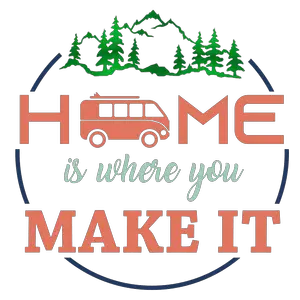Hey! This site is reader-supported and we earn commissions if you purchase products from retailers after clicking on a link from our site.
Unless you are used to living in a tiny home or studio apartment, you will quickly realize that to be a full-time RV dweller that you are going to need to do some considerable downsizing before hitting the open road. Things like that fine set of China that you only use for Christmas or special occasions or your shelf filled with ceramic knick-knacks are simply not practical to move on a continual basis.
Downsize your life
For the first time RVer, downsizing may be a daunting task and these tips on preparing for your journey will help you with making this transition a little less stressful.
- Sell your items online. Larger items such as furniture or lawn and garden equipment can easily be listed for no cost on platforms such as Facebook Marketplace or Craigslist.
- Have a garage sale. Having a garage sale is a great way to get rid of unwanted or unneeded items that you may have otherwise thrown or given away.
- Consider having a party to give away some of your items. As the time for your departure gets nearer you may find yourself feeling as if you have a lot of people to bid farewell to and having a party to say goodbye to friends, colleagues and loved ones is a good way to give away some items to those people as a way for them to have a memento or two that represents your relationship with them.
- Donate unwanted items. Consider donating things like clothing you won’t need to charitable organizations such as churches that operate thrift stores or perhaps a shelter for battered women or children. You may also consider taking some of your higher end clothing to consignment shops who will sell those items for you for a small commission.
Familiarize yourself with your RV
Now that you have downsized your belongings, one of the first things a full-time RV traveler should understand is that your home on wheels is your home. As such, there are always going to be maintenance issues that need to be done to your home and you need to prepare yourself for those issues.
For example, if you plan on doing a lot of boondocking which is also known as off grid camping, and you are in the middle of northern Montana when you suddenly have no power from your roof mounted solar panels, are you prepared to repair that issue on site? If you have a blown fuse and your refrigerator stops working, do you know where the fuse box is located and what type of fuse you need to get it working again?
These types of problems are not uncommon when you are RVing and should be expected and anticipated. Keep in mind that when you are rolling down the road parts that would otherwise be permanent in a fixed structure can come loose. Screws, battery cables, water lines and electrical fixtures can all loosen up over time and you should familiarize yourself with your RV and prepare for some minor problems to occur while you travel.
How do I familiarize myself with a new RV?
It’s important that you understand how your new RV drives or pulls if you are buying a trailer. One good way to do this is by taking some starter trips so you become comfortable with how your RV handles in traffic, inclement weather or poor road conditions. Most RVs are considered “high profile” vehicles and in high winds these vehicles can act like a sail on a boat and can suddenly sway or in extreme instances even flip over. Knowing how your new RV handles in these examples could save your life or that of others. Another thing should know is the length, width and height of your RV. The last thing you need in your RVing experience is getting your rig into a place you can’t get out of or worse yet, hitting low hanging power line or bridge overpasses.
Related: RV towing guide
Read the owner’s manuals
When you purchase an RV from a dealership they will supply you with what seems like an overwhelming amount of manuals and equipment guides that will explain the features of your vehicle. You will find manuals explaining how your plumbing and electrical system work, your refrigerator and stove, the air conditioning, the tires, lighting and leveling systems just to name a few. While pouring through all these materials may seem a bit overwhelming at first, they are also a good way to get to know your RV and you should keep all of these materials in a specific spot in your RV where they can be easily accessed when you may need to solve a problem with one of your RV components. If you are purchasing a used RV, you may find that the previous owner has discarded some of these materials and you would be wise to do some research on your own before heading down the road full-time.
Now that we have covered your RV, there are some other aspects that a full-time RVer should know before they begin their adventure.
Get your first aid kits in order
First and foremost, a good first aid kit is a real necessity when traveling. No one intends to get hurt, but accidents do happen and if you are in a remote location help could potentially be hours away from helping you. Also, know where your fire extinguishers are located and how to use them. If you are purchasing a used RV this applies as well but make sure they are not expired and replace them with new extinguishers if they are beyond there expiration date.
Investigate your health care policy
If you have health care insurance, it is a good idea to familiarize yourself with your underwriter’s policies pertaining to out-of-state coverage. Some policies do not cover services rendered from out-of-state facilities or physicians and if your insurance coverage is written that way then you may want to consider doing some research and finding a carrier that is suitable for your needs as a full-time RVer.
Take care of mail service
While almost all banks and credit card companies now offer online paperless billing, there may be times when you may receive personal correspondence from friends or family or perhaps you are expecting a package. Some campgrounds will allow you to have mail sent to them and they will hold it for you in their office and some campgrounds won’t do this service. You should check with the campground management on their policies about mail and package delivery before having something sent to where you are located. One option some RVers use is a mail forwarding service. They will hold your mail until you contact them and for a small fee will send your mail to your location. Make sure to read our full guide on RV mail forwarding options to get more details.
Understand the cost
Full-time RVing is certainly a cost commitment. Read my guide on the cost of full-time RV living and be sure to check out the budget worksheet in there too.
Now that you know some of the ins-and-outs of getting your full-time RV adventure started you are well on your way to enjoying the parks and scenic byways of this beautiful land. What are you waiting for?




